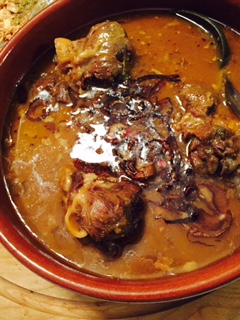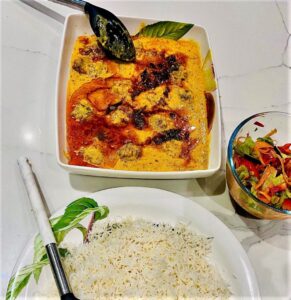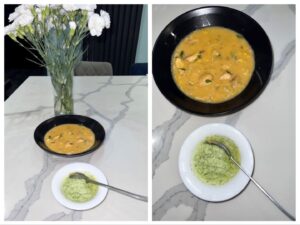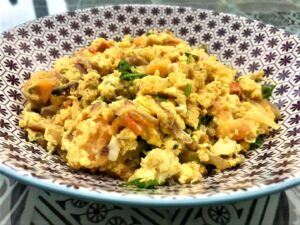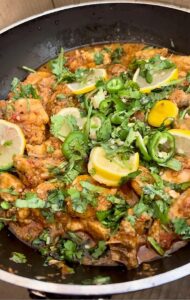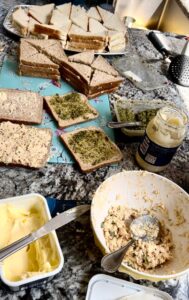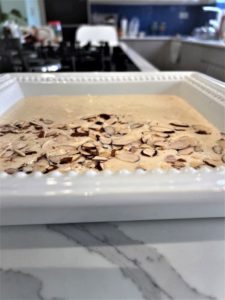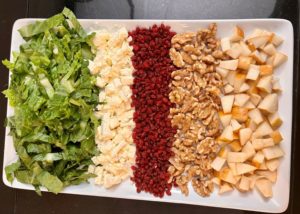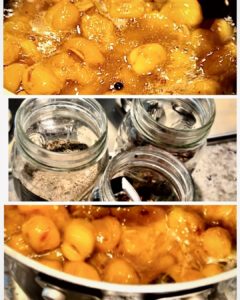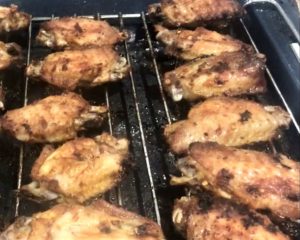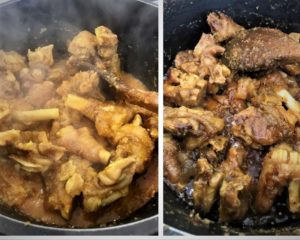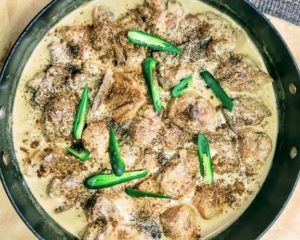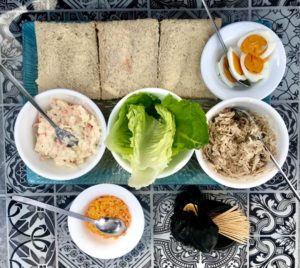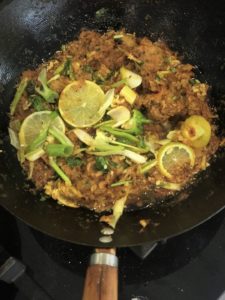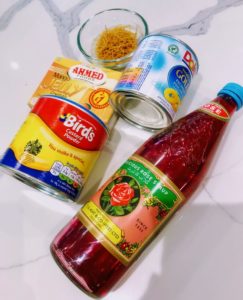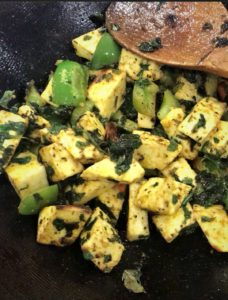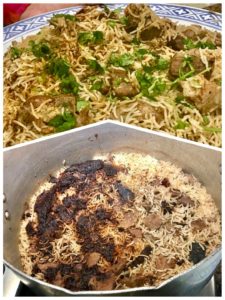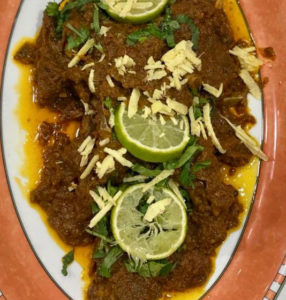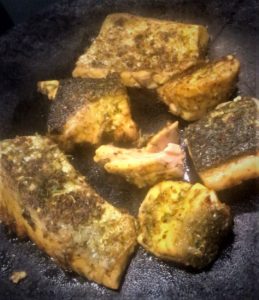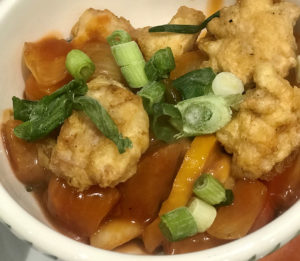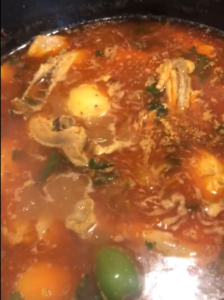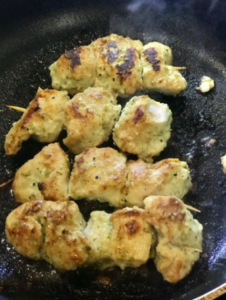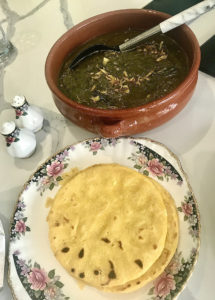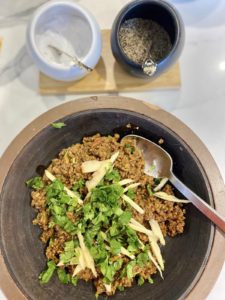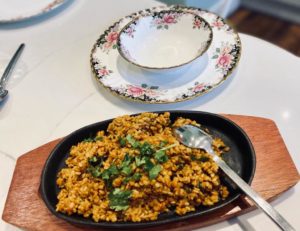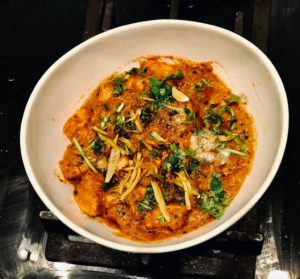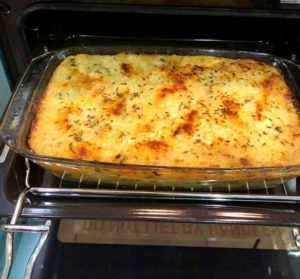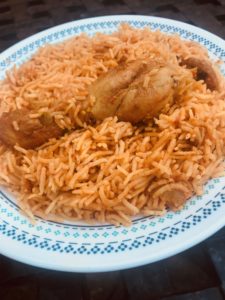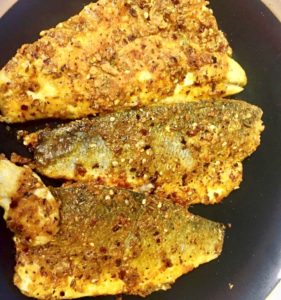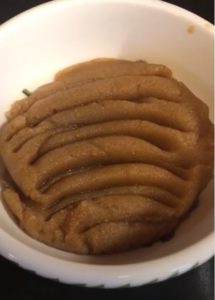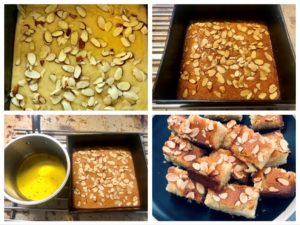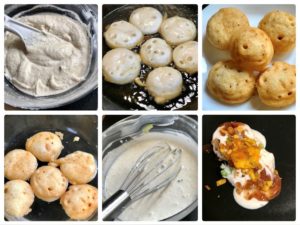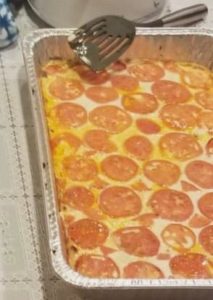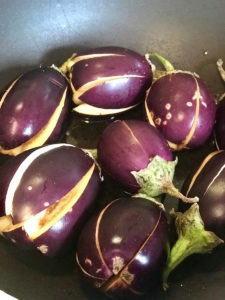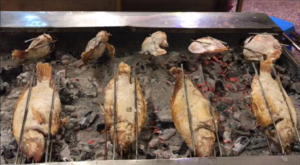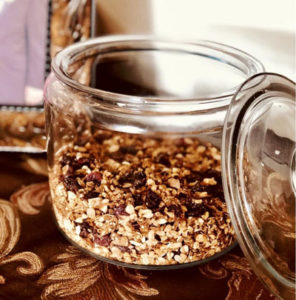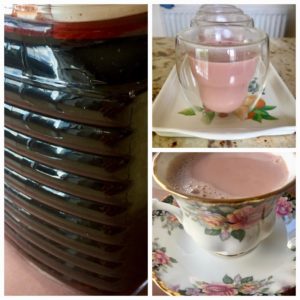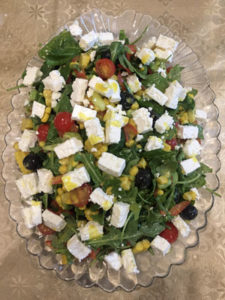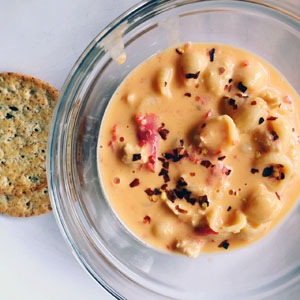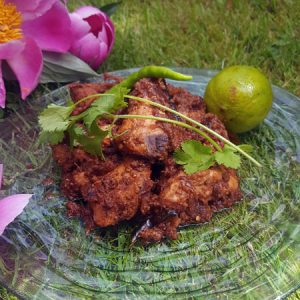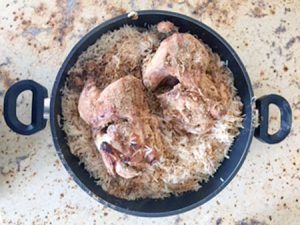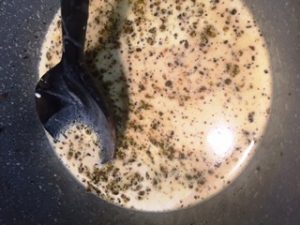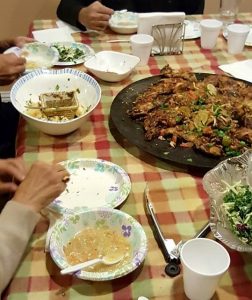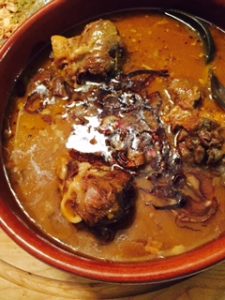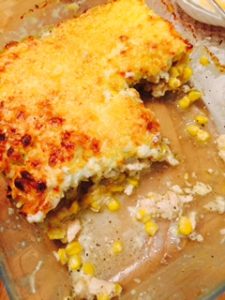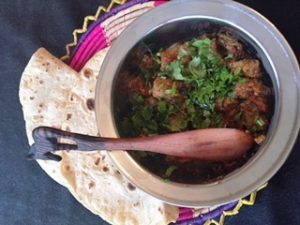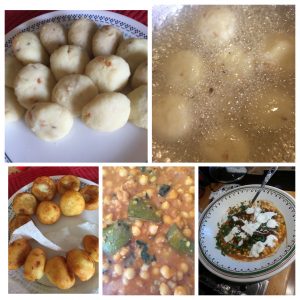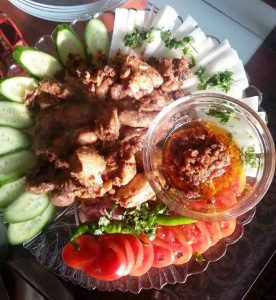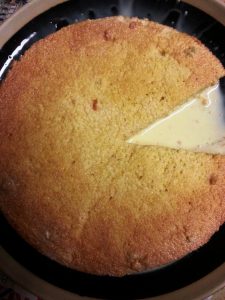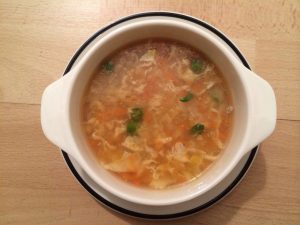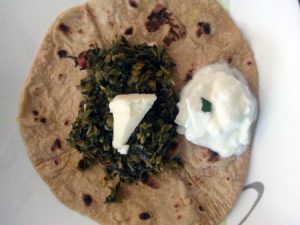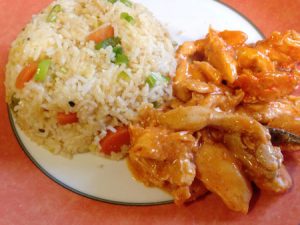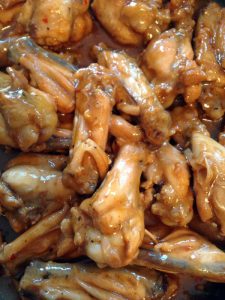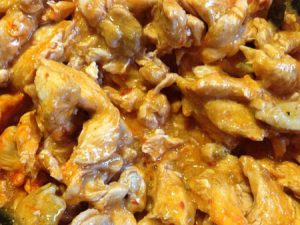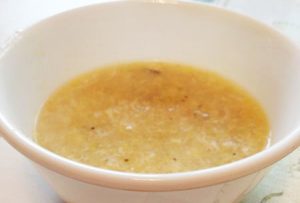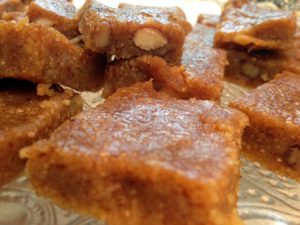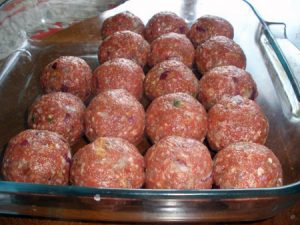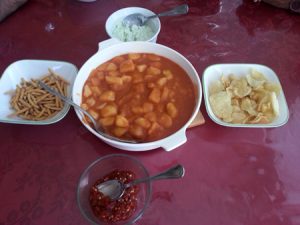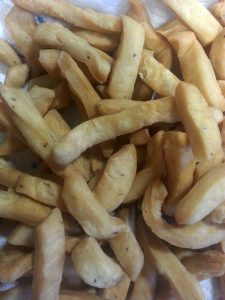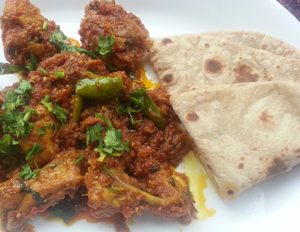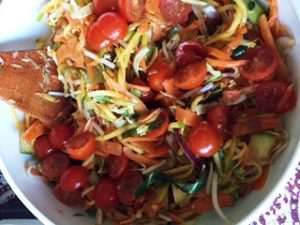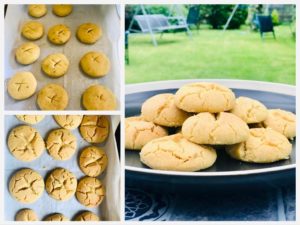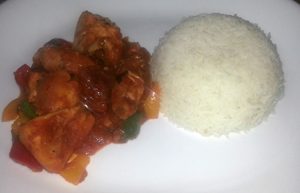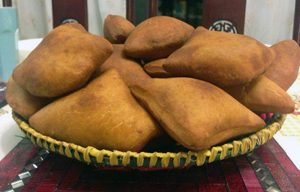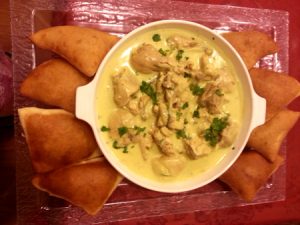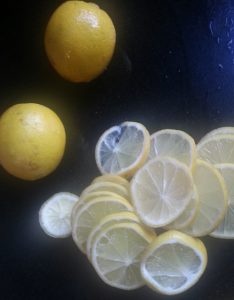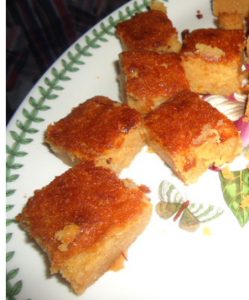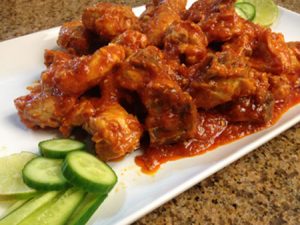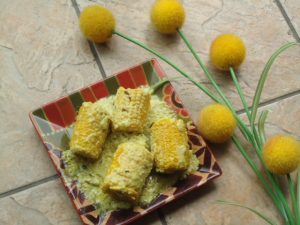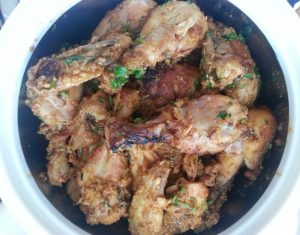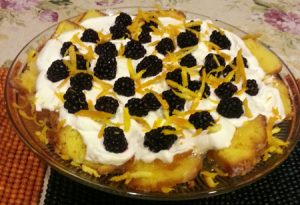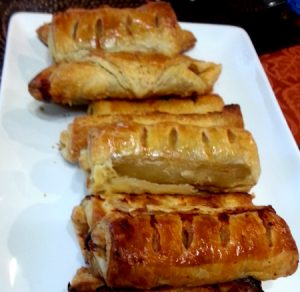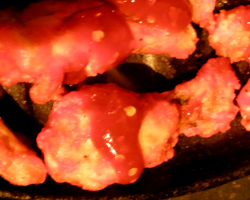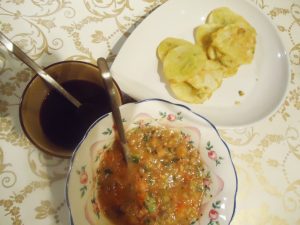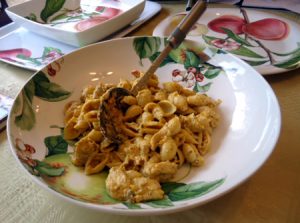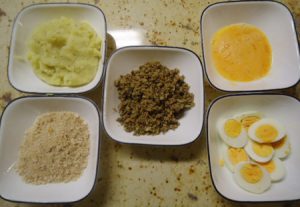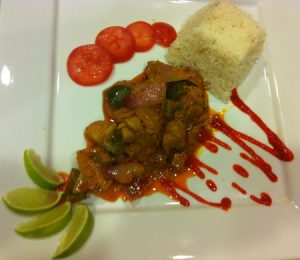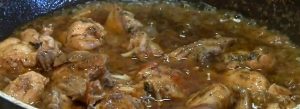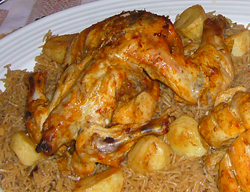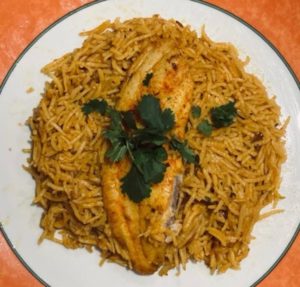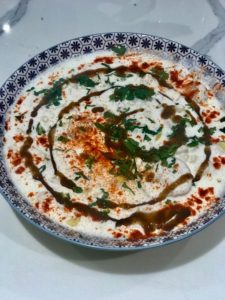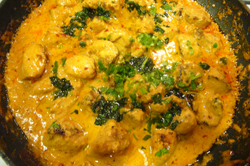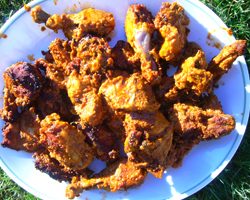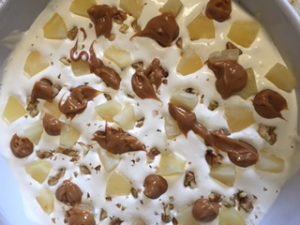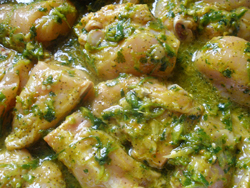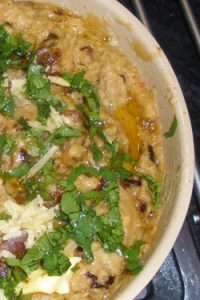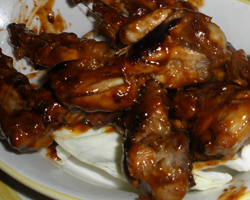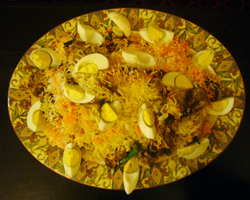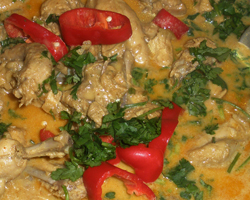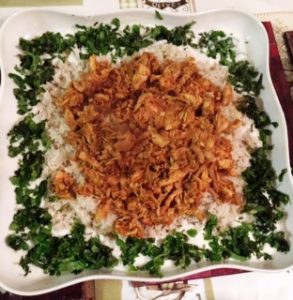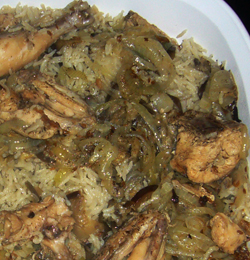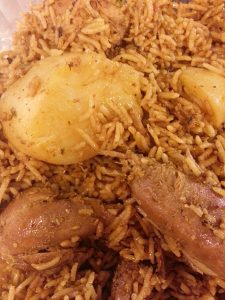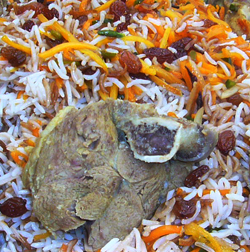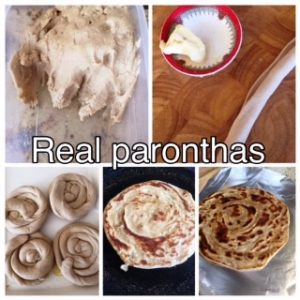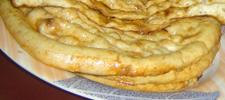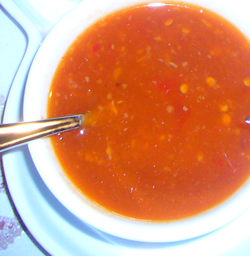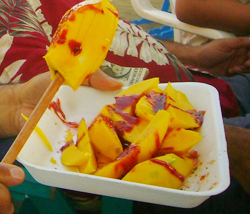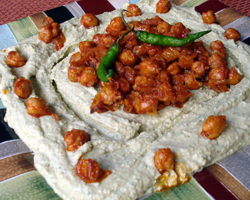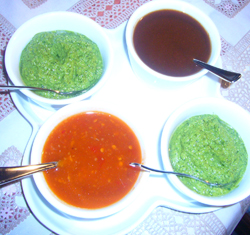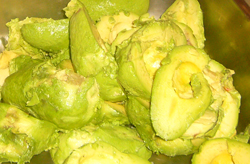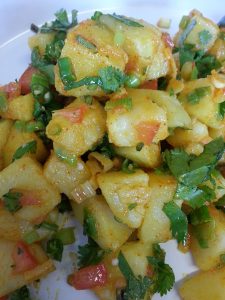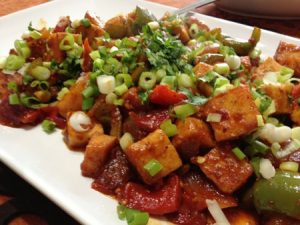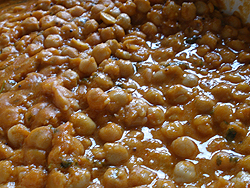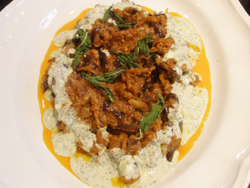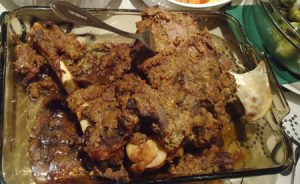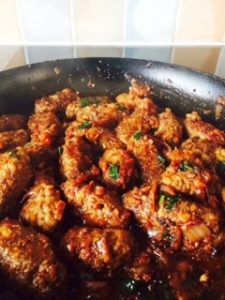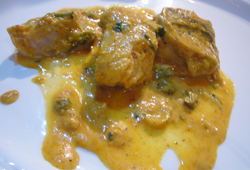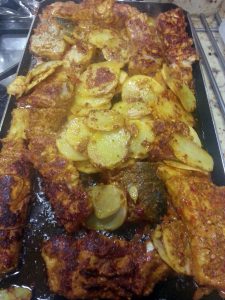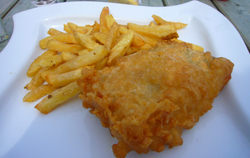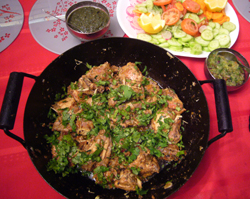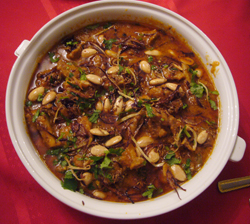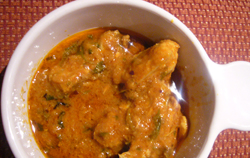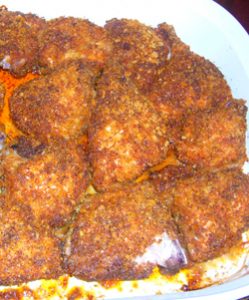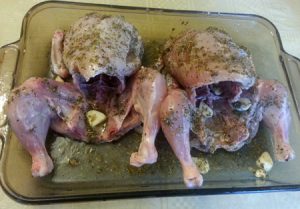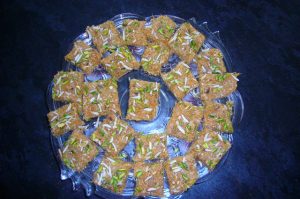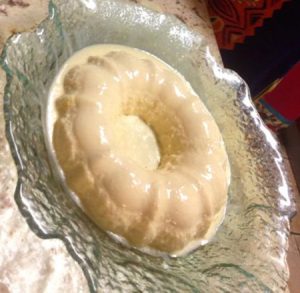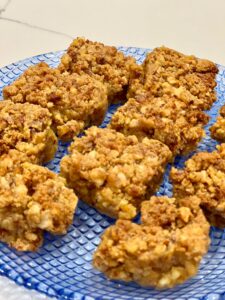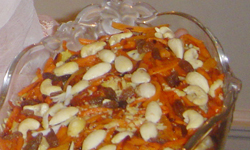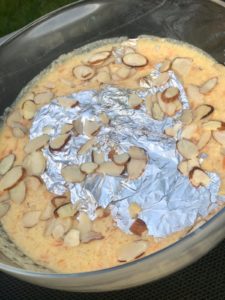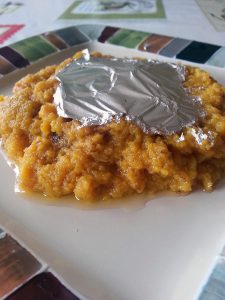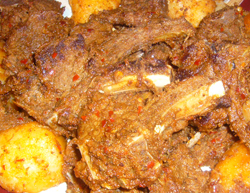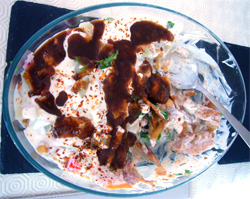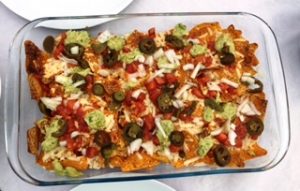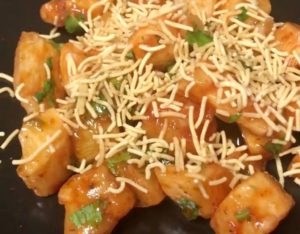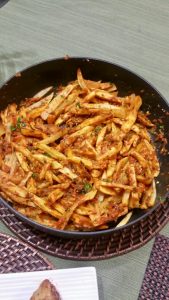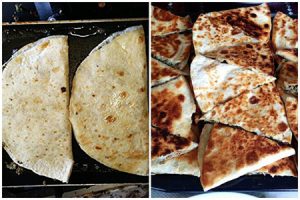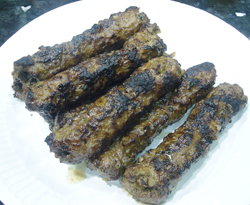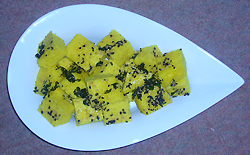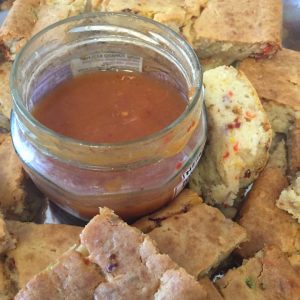Nihari was a dish created for kings, nawabs and emperors but also served in huge vats to the workers in eras gone by. Rich in meat content, light on spices but very satisfying. My first encounter was via our friend Mrs Ghauri, she sent a bowlfull for us to enjoy as a family. We looked at it right and left up and down, not knowing how and what to eat it with. It looked like a soup, but was too thick, it definitely wasn’t a curry but more like a stew! We scooped up with naans and ate the huge bits of meat just coming off the bones with relish. Then the clamour for the recipe! She was very obliging and we learnt to make it from scratch as this was circa 1985.
Nihari revolves around the cut of the meat, the slow cooking and the end result of whole tender pieces of meat that come off the bone at a touch. Best made with beef shank, sometimes with mutton or spring lamb and very occasionally with chicken. It is best cooked very slowly on low heat and if possible overnight.
Pressure cooking the meat and using ready-made Nihari masalas will hasten the process if you are strapped for time.
Nihari is not normally served with rice, chappatis or paranthas.
Ingredients
- 1 kg shank lamb or mutton (or meat cut into fist-size pieces)
- 10 cups of water
- bouqet garni made of 3 tbs fennel seeds and 1.5 tbs ajwain (take these spices, place in a spice ball or tie-up in a piece of muslin cloth or J-cloth)
- 4 tsp salt
- half cup oil
- 4oz finely sliced onion
- 4 tbs plain yoghurt
- 1 tsp red chillie powder
- half tsp turmeric powder
- half cup chapatti flour – make a runny paste with cold water
- 2 tbs corn flour – make a paste with cold water
for tampering/tarka
- 1 tbs ghee
- 6 tbs oil
- 2 oz onion very finely slice
- 1 tbs fennel seeds crushed
- 1 tsp ajowain
- garam masala (optional)
luaazmaat-accompaniments
- finely cut Julienne slices of fresh ginger
- lime quarters
- golden brown fried onions
Method
- Put the large pieces of meat into a deep and wide pan, add the water, bouquet garni (fennel and ajowan seeds) and salt.
- Bring to a boil, keep on a rolling boil for 2 hours (this will depend on the type of meat you use) or until meat is soft and tender and almost comes off the bone. Add 2 cups of water and boil further if required. This is the most difficult part of the recipe to ensure the meat is fully cooked, tender and just coming off the bones. (Making soup/yukhni).
- Discard the bouquet garni.
- Very gently remove meat pieces into a large flat dish so that the meat doesn’t break up,cool and keep refrigerated.
- If using mutton or lamb, cool the soup and place in the refrigerator overnight – the fat will rise to the top of the soup and set, remove with a spoon and discard – if making on the same day cool in FREEZER until the fat sets, this must be discarded as it is extremely unhealthy.
- Add the oil into a large pan, when hot add the onions, stir and cook until onions are a nice medium brown, add the yoghurt, red chillies and turmeric, fry for 30 secs and switch off. Cool.
- Remove the onions and yoghurt mixture into a small chopper, add enough water to blend together.
- Remove all the mixture from the chopper and return to the pot.
- Add the soup and bring to the boil, taste to ensure salt and chillies are to your liking, add if required. Boil together for 20 mins.
- Add the flour mixture continuously stirring to ensure no lumps are formed. Keep on a rolling boil for 30 – 40 mins.
- Gently lower the meat pieces into this very hot and thick gravy, boil together on a low heat for a final 7-10 mins.
- Remove the cooked nihari into a wide dish.
- Prepare the tarka – add ghee and oil to a frying pan, add the sliced onions, when onions have turned brown, tamper the meat and soup (stew) mixture directly in the serving dish.
- Sprinkle the crushed fennel and ajwain seeds and add garam masala if using. Check taste is to your liking, add salt and more spices required.
- Serve hot with naans.

